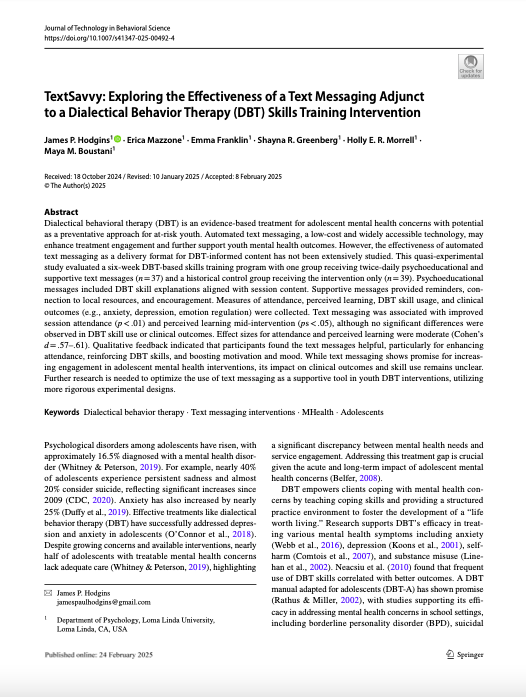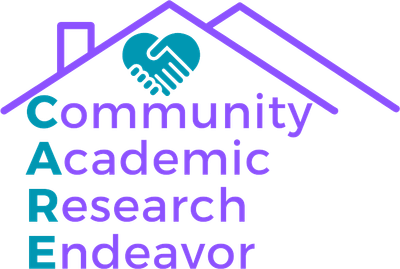TextSavvy: Exploring the effectiveness of a text messaging adjunct to a dialectical behavior therapy (DBT) skills training intervention

Dialectical behavioral therapy (DBT) is an evidence-based treatment for adolescent mental health concerns with potential as a preventative approach for at-risk youth. Automated text messaging, a low-cost and widely accessible technology, may enhance treatment engagement and further support youth mental health outcomes. However, the effectiveness of automated text messaging as a delivery format for DBT-informed content has not been extensively studied. This quasi-experimental study evaluated a six-week DBT-based skills training program with one group receiving twice-daily psychoeducational and supportive text messages (n = 37) and a historical control group receiving the intervention only (n = 39). Psychoeducational messages included DBT skill explanations aligned with session content. Supportive messages provided reminders, con- nection to local resources, and encouragement. Measures of attendance, perceived learning, DBT skill usage, and clinical outcomes (e.g., anxiety, depression, emotion regulation) were collected. Text messaging was associated with improved session attendance (p < .01) and perceived learning mid-intervention (ps < .05), although no significant differences were observed in DBT skill use or clinical outcomes. Effect sizes for attendance and perceived learning were moderate (Cohen’s d = .57–.61). Qualitative feedback indicated that participants found the text messages helpful, particularly for enhancing attendance, reinforcing DBT skills, and boosting motivation and mood. While text messaging shows promise for increas- ing engagement in adolescent mental health interventions, its impact on clinical outcomes and skill use remains unclear. Further research is needed to optimize the use of text messaging as a supportive tool in youth DBT interventions, utilizing more rigorous experimental designs.



